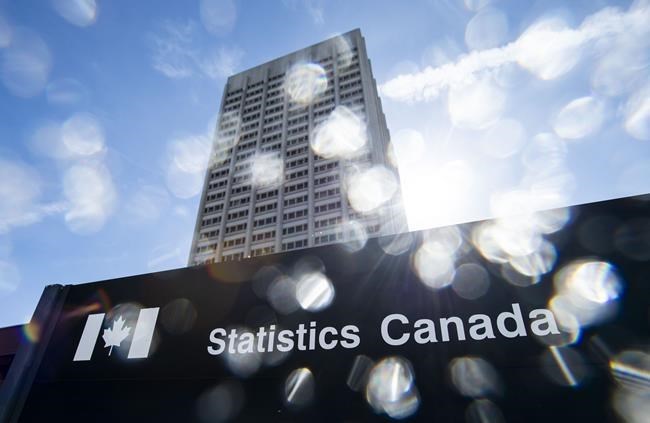OTTAWA — The economy bounced back sharply in the third quarter of the year after taking a walloping in the preceding three-month stretch, in a demonstration of what may be in store as COVID-19 concerns wane and Canadians start spending anew.
Statistics Canada said Tuesday the economy grew at an annual rate of 5.4 per cent in the third quarter of this year as COVID-19 restrictions eased and household spending rose.
The result was a rebound from a contraction in the second quarter that Statistics Canada also said Tuesday was deeper than it previously reported.
Quarterly growth in household spending was one of the largest on record. Consumers spent their money at restaurants, bars, hotels and on air travel, which jumped 181.9 per cent as more travellers took to the skies.
Offsetting those soaring figures was floundering business investment and lower consumer spending on goods like cars.
TD senior economist Sri Thanabalasingam said growth in real domestic product could have been even stronger in the third quarter if not for global supply-chain issues.
But celebrations were quickly grounded by severe flooding in British Columbia, and concerns about a new, possibly more transmissible variant of COVID-19.
CIBC chief economist Avery Shenfled said the Omicron variant, a potential retightening of restriction and the need for booster shots could all affect the next leg of the economic recovery,
"A summer lull in COVID worries brought Canadians out to party, and their spending spree was fun while it lasted," he wrote in a note, "but we're facing new concerns about whether a more vaccine-resistant variant could set back the timetable for further growth."
Statistics Canada said the third quarter ended with the economy edging up by 0.1 per cent in September, as broad gains in service industries were offset by declines in manufacturing that was partly pulled down by a global shortage of semiconductor chips.
The agency also said preliminary data suggests the economy grew by 0.8 per cent in October to start the final quarter of the year, led by manufacturing.
Statistics Canada said that with that estimate, total economic activity was about 0.5 per cent below the pre-pandemic level recorded in February 2020.
Stephen Brown, senior Canada economist with Capital Economics, said the shortfall should be made up by the end of this year or early next. He also said the path for the economy should lead the Bank of Canada to raise its trendsetting interest rate by the middle of 2022.
"Certainly, we're getting to the final stages of a recovery here and starting to think about tightening (monetary) policy," Brown said.
The federal government has already tightened its pandemic purse strings. In October, the Trudeau Liberals ended broad benefits to workers and businesses in favour of more targeted support outlined in a bill now before the House of Commons.
The parliamentary budget officer on Tuesday estimated more targeted rent support to still hurting businesses would push the overall price tag for the supplement to $8.3 billion.
In two other reports, the PBO estimated the cost of extending pandemic sickness benefits to May would cost $373.8 million, and $554 million to add extra weeks of eligibility to the federal caregiving benefit.
Statistics Canada noted that government transfers dropped in the third quarter as employee compensation rose 2.9 per cent, which was one of the largest bumps over the last two decades.
The extra spending outpaced the growth in disposable income, which dropped the savings rate to 11 per cent from 14 per cent in the second quarter. The savings rate is still well above pre-pandemic levels.
"Households are well-prepared to deal with potential challenges ahead, and there is still plenty of gas in the tank to fuel an eventual comeback in the service sector," wrote BMO chief economist Douglas Porter.
This report by The Canadian Press was first published Nov. 30, 2021.
Jordan Press, The Canadian Press




